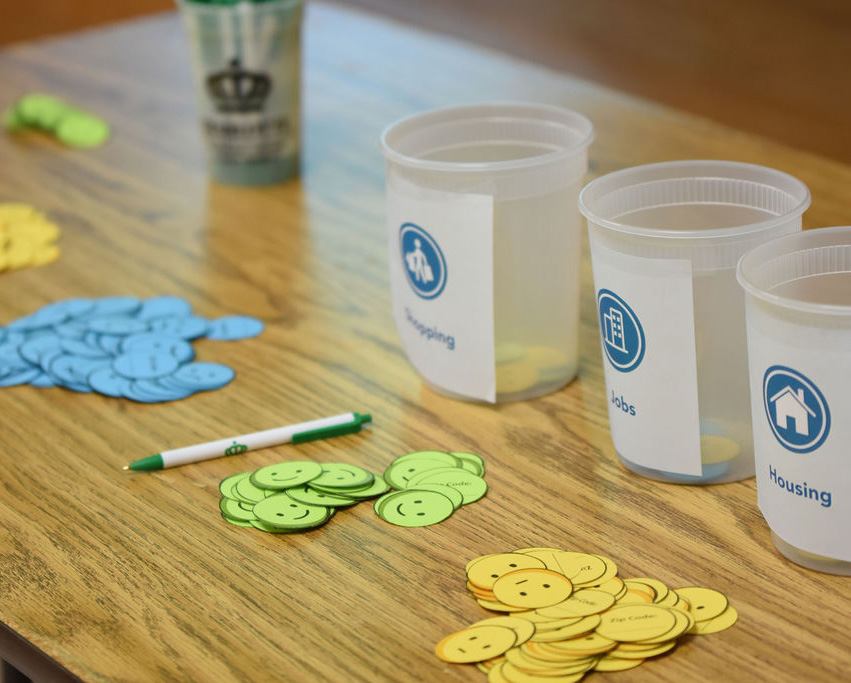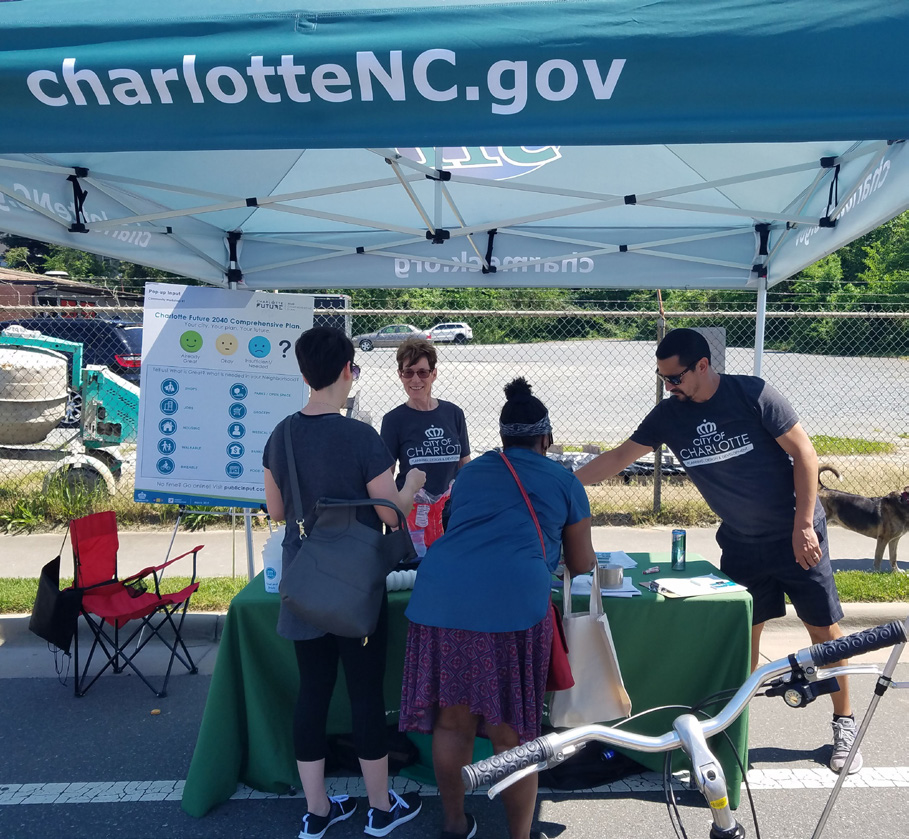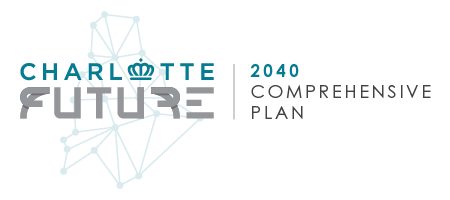October 11th – December 3rd 2019


NEIGHBORHOOD AMENITIES FEEDBACK
The first pop-up exercise of Phase 2 asked residents about their neighborhoods: what is already great and what is needed or lacking? Participants were given the option of placing a smiling “already great” emoji, a neutral “okay” emoji, and a frowning “insufficient/needed” emoji with their zip code on the back into each of 10 amenity buckets. The neighborhood amenities the City asked for input on included: shops, jobs, housing, walkable, bikeable, parks/open space, grocery stores, medical services, banks, and food and drink. The use of emojis put the activity into familiar terms and icons for the neighborhood amenities limited the amount of words needed to understand the exercise. Representatives from the City were available to answer questions or gather more detailed input from residents who had time for further discussion. See the following page for the compiled, map-based results.
Each zip code area was assigned a color based on the percentage of people who thought the amenities in their neighborhood were already great, okay, or insufficient. The results showed a close correlation to the “Arc” and “Wedge” geographies, historic areas of affluence and inequity, that were investigated more closely in the Charlotte Equity Atlas.

GROWING BETTER PLACES POP-UPS
In order to foster more awareness of the Growing Better Places game, and get supplemental input from those who couldn’t commit to a full, sit-down game session, a fast and fun pop-up version was designed. People were given a low-pressure educational quiz about which areas of the City had the most households and jobs, the most single family homes, the least access to transit, and the lowest anticipated growth. This was intended to help get participants thinking about growth and equity as they considered strategies for improving Charlotte in the future. In some pop-ups, later in the process, participants reviewed the future growth Strategies and placed sticker dots next to their top three choices. The most frequently selected policies are listed below. To see the complete results of the strategy selections, see page 13.
• Transit Corridors: Invest in another high capacity transit corridor
• Neighborhood Mixed Use: Add goods and services in more neighborhoods
• Displacement: Reduce pressure on neighborhoods with high intensity residential in activity centers
• Transportation Choices: Invest in bike and pedestrian improvements

SCENARIO POP-UPS
A brief version of the Growth Scenarios information was presented at several pop-up events around the City. These were intended to quickly inform people who were unable to attend the longer, more in-depth October Workshops. While the shortened format did not allow full time for people to learn the details of each scenario, they did engage in quick conversations about the purpose and intent of the Scenario Planning and an explanation of the Performance Measures. People then placed colored dots next to the Performance Measure that they believed was most important to Charlotte’s Future. The most and least selected Measures can be seen below. To view the full results of this activity and the full Growth Scenarios input, see pages 19-28 in the following Chapter.
In addition to the Pop-up activity, many events also had the complete online Scenarios survey, a more close equivalent of the Workshop information and input, available on tablets for those who had more time to provide feedback.

